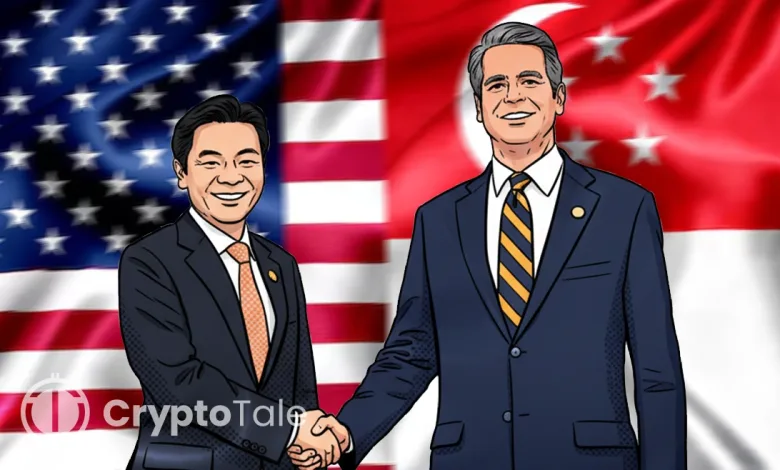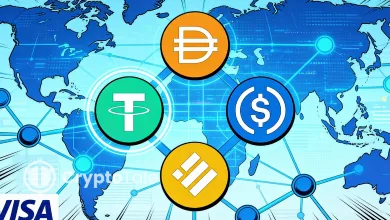Bessent and Wong Discuss Dollar Stablecoin at APEC Summit

- Scott Bessent and Wong held talks at APEC on a potential dollar stablecoin plan.
- Singapore and the U.S. are seeking to align digital currency rules for global use.
- The meeting marked progress toward stronger cooperation in financial systems.
U.S. Treasury Secretary Scott Bessent met Singapore Prime Minister Lawrence Wong on the sidelines of the APEC Economic Leaders’ meeting in Gyeongju. The two discussed the potential creation of a U.S. dollar–backed stablecoin and greater international cooperation on digital currency frameworks. During the meeting, Bessent recognized Singapore’s growing influence in digital assets and dollar-stablecoins. He also thanked Singapore for cooperating with the U.S. Treasury in combating organized crime and disrupting illicit oil trade linked to Russia and Iran.
Strengthening Economic and Digital Collaboration
Secretary Bessent reaffirmed Washington’s goal to strengthen cross-border cooperation on digital finance. He noted that dollar-pegged stablecoins could support U.S. monetary leadership and drive higher global demand for Treasury securities. Furthermore, both nations agreed that responsible innovation in payment systems could modernize global settlements while maintaining financial integrity.
Bessent also acknowledged Singapore’s commitment to advancing digital-asset use and expanding U.S. dollar stablecoin adoption. He described stablecoins as efficient, frictionless instruments for payments that could improve dollar accessibility worldwide. Treasury officials have previously stated that such digital tokens could become important holders of U.S.government debt, creating a new link between blockchain systems and sovereign finance.
Singapore’s role as a key fintech hub made it a natural partner for these discussions. The city-state hosts major digital asset firms and continues to develop comprehensive frameworks for regulating financial technology. Its active involvement in blockchain policy enables faster collaboration on shared financial standards.
Wong Calls for Pragmatism and Reform
Prime Minister Wong urged fellow APEC leaders to adopt pragmatic and forward-looking approaches to trade and technology. “Doing so will deliver tangible outcomes for our economies, while reinforcing the rules-based global order,” he said.
He cautioned that rising global fragmentation poses a threat to multilateral cooperation. He also reminded members of APEC’s founding purpose, promoting open markets and regional stability. Wong went on to recommend reform of the World Trade Organization and stated that its consensus-based system had become “a recipe for paralysis.” He contended that the introduction of new routes would be the only way to facilitate more effective decision-making.
Wong also suggested that trade associations should collaborate more closely to achieve the goal of establishing the Free Trade Area of Asia and the Pacific. He referred to the current trade deals as essential components and suggested linking them as a way to improve regional cooperation. He mentioned collaboration between sectors, like the one between Singapore, Chile, and New Zealand on the green economy agreement, as a gradual integration measure.
Related: Singapore Unveils BLOOM: The AI–Crypto Settlement Plan
Aligning Stablecoin Rules with Global Standards
Although there has been no public announcement of a formal framework for stablecoins, the meeting revealed increased cooperation among countries regarding the regulation of digital assets. The U.S. is already moving forward with a legislative proposal that is aimed at stablecoins, which will have extensive reserve support and stringent regulation. The conversation with Singapore suggests a determination to harmonize international rules for combating money laundering and to establish similar policies for cross-border payments.
Observers note that the United States views dollar-backed stablecoins as strategic tools to maintain global financial influence. Singapore’s engagement could help extend U.S.-compatible standards across Asia’s fast-growing digital economy.
As APEC concluded, Bessent and Wong’s dialogue indicated a shared recognition that regulated digital currencies could transform international finance, but can collaboration keep pace with innovation?




